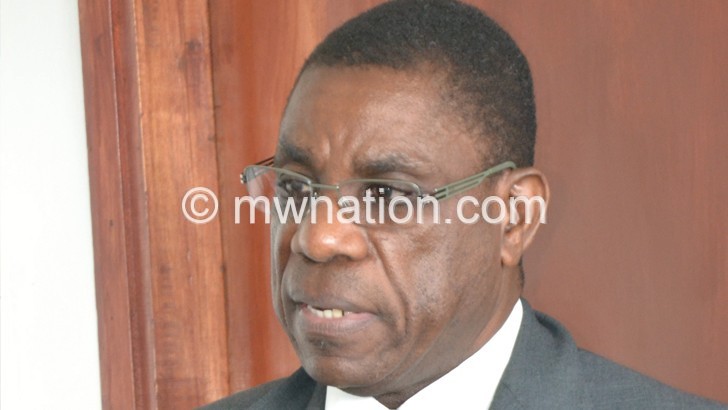Consumers Association of Malawi (Cama) says people are facing a challenging economic environment in the aftermath of the 25 percent devaluation of the kwacha effected on May 27 this year.
The consumer rights body claims in a statement that the economy, which is expected to grow by a paltry 1.7 percent this year, is worse off now, threatening the consumer welfare and escalating the cost of living crisis.
Cama executive director John Kapito said the outcome of the decision to devalue the kwacha has been negative, highlighting that four months since the devaluation of the local unit, the economy has continued to sink with sharp price increases on all basic commodities.
Kapito: We have noted closures of
small-scale businesses
“We have noted closures of both small- scale businesses while industries have created mass retrenchments in an economy that has the highest unemployment rates amid scarcity of foreign exchange, petrol and diesel which in turn is affecting consumers,” he said.
Kapito said government seems to have no alternative economic plans to ensure that the economy keeps running as everything has come to a standstill.
“Malawians are going through tough times and yearning for a day when the economy would be back to normal and now we are wondering if the devaluation was indeed necessary or poor miscalculation of International Monetary Fund’s support or if it was meant to hurt consumers with high cost of living,” he said.
But in a recent statement, Reserve Bank of Malawi (RBM) Governor Wilson Banda admitted that devaluation has come with an immediate rise in the cost of imported goods.
He said the benefits of devaluation come with a lag, sometimes even up to a year, as such, the benefits from the devaluation have not fully manifested in the economy.
He said: “Devaluation is ideally supposed to ignite expenditure switching from expensive imported goods towards cheaper goods, which are produced domestically.
“The RBM, therefore, wishes to notify the general public that the adjustment was necessary, sufficient and has brought the exchange rate to the desired market clearing level.”
Banda said following the realignment, there has been improved flow of foreign exchange, which is helping with importation of strategic commodities.
RBM devalued the local unit amid shortage of foreign exchange. The central bank justified the move, saying it was aimed to realign the exchange rate with economic fundamentals.
Then, imbalances between supply and demand were prevalent on the domestic foreign exchange market evidenced by low foreign exchange supply, declining official foreign reserves and widening spread of rates on the market.
However, since then, prices of most basic goods and services have gone up, thereby elevating inflation, which is currently at 24.6 percent as of July this year.
On the other hand, the gross official reserves, under the direct control of the RBM, have continued to fall from $404.18 million (about K419 billion) or 1.62 months of import cover in July 2021 to $372.99 million (about K386 billion), or 1.49 months of import cover in July 2022, according to RBM figures.
The post Consumers lament devaluation impact appeared first on The Nation Online.
 Moni Malawi
Moni Malawi 

